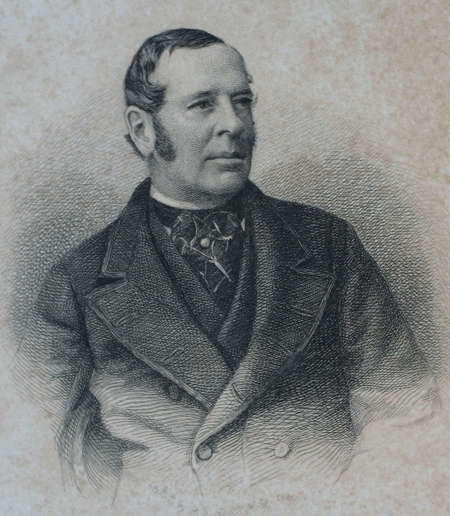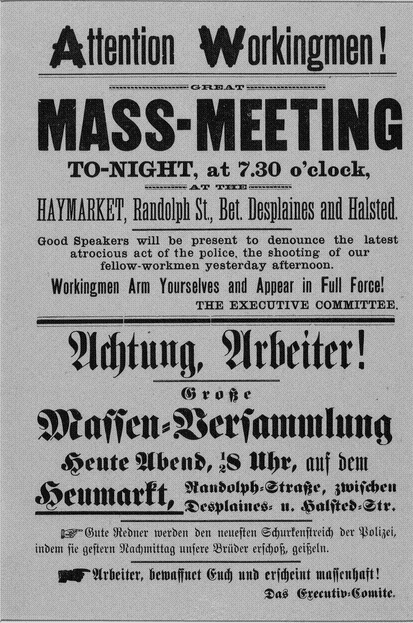Historians have debated at length the question of when certain ideas about homosexuality came into currency. Here’s a piece of evidence, not previously reported to my knowledge:
In the Supreme Judicial Court of Massachusetts on 11 December 1868, a young man named Samuel M. Andrews was tried for murder. He pleaded not guilty by reason of “transitory insanity.” He was driven mad, he said, by Cornelius Holmes’s attempt to have sex with him.
It was a strange, sad case. According to the prosecuting attorney, Cornelius Holmes was not like other men. He was fifty-three years old at the time of his death and weighed 225 pounds. A bachelor, he lived alone in a boarding house. Though he had no occupation, he was said to be worth $20,000. The prosecution claimed that “The only person with whom he was at all intimate was the prisoner,” Andrews, who had killed him. The defense more or less agreed with this characterization of their relationship. Andrews “was almost the first young man Cornelius Holmes had ever met, who had not slurred him, & hooted at him,” Andrews’s attorney said. He added that Holmes “was not an idiot; . . . He was rather slow; played in childhood with children younger than himself.”
How intimate were they? The lawyers tried to bring this out. There was a telling exchange during the examination of a witness named Lysander Bartlett, a ship’s carpenter:
Question. Were Cornelius & Andrews intimate friends?
Witness. Mr. Andrews can tell you better than I can.
Chief Justice. You should not say to counsel that Andrews can tell you that better than I can. It is improper.
Witness. ‘Tis, eh? I knew they were intimate. . .
After Andrews was arrested for the murder, witnesses saw him kiss Holmes’s body.
In court, Andrews had a difficult task: he had to establish the nature of Holmes’s interest in him, and he had to make it sound plausible that he had resisted Holmes’s advances despite their persistence. He didn’t quite manage. He testified that “about nine years ago one stormy evening,” he and Holmes had shared a bed. “After talking awhile he turned towards me, & tried to put a part of his person between my legs, behind. I left the bed.” Though Holmes made other advances, the friendship continued. In fact there were hints that Holmes had thought of leaving his money to Andrews.
The murder came about one day when Holmes beckoned Andrews to follow him off the road and into the forest. Once they were alone, Holmes threw him down, tore open his pantaloons, put his hand in a relevant place, and said, “Now I’m going to have some, this time.” In a panic, Andrews grabbed a stone . . . That, at any rate, is what Andrews claimed in court, though he also claimed, confusedly, that he was “entirely unconscious of what took place.”
In summing up, the defense stressed how common Holmes’s tendency was:
Nor, gentlemen, is this any new crime. Go to our soldiers & sailors, inquire of our naval officers & see whether it is a new crime. The government would have you believe that this is an improbable story, because the crime is rare; gentlemen, this story is more than probable, for it is a crime which has always existed.
The prosecution, on the other hand, stressed how unlikely it was that Andrews would have had to kill Holmes in order to defend himself from rape. “Rape,” the prosecution insisted, wasn’t even the right word; in fact, the proper word didn’t exist, because the thing was impossible. The whole question of sex between men, the prosecution suggested, was probably a red herring: “There was in the present case no adequate evidence of any voluntary acts of indecency between the parties,” the prosecution argued, “but even if such existed, these had no tendency to prove an attempt to commit this act by force.”
In his instructions to the jury, the judge observed that Andrews had taken Holmes’s earlier advances quite calmly and had remained his close friend despite them. Taking the hint, the jury found Andrews guilty of manslaughter, and he was sentenced to twenty years.
(Source: Report of the Trial of Samuel M. Andrews, Indicted for the Murder of Cornelius Holmes, before the Supreme Judicial Court of Massachusetts, December 11, 1868, including the Rulings of the Court upon Many Questions of the Law, and a Full Statement of Authorities upon the Subject of Transitory Insanity. By Charles G. Davis, of Counsel for the Prisoner. New York: Hurd & Houghton. Cambridge: Riverside Press, 1869.)


